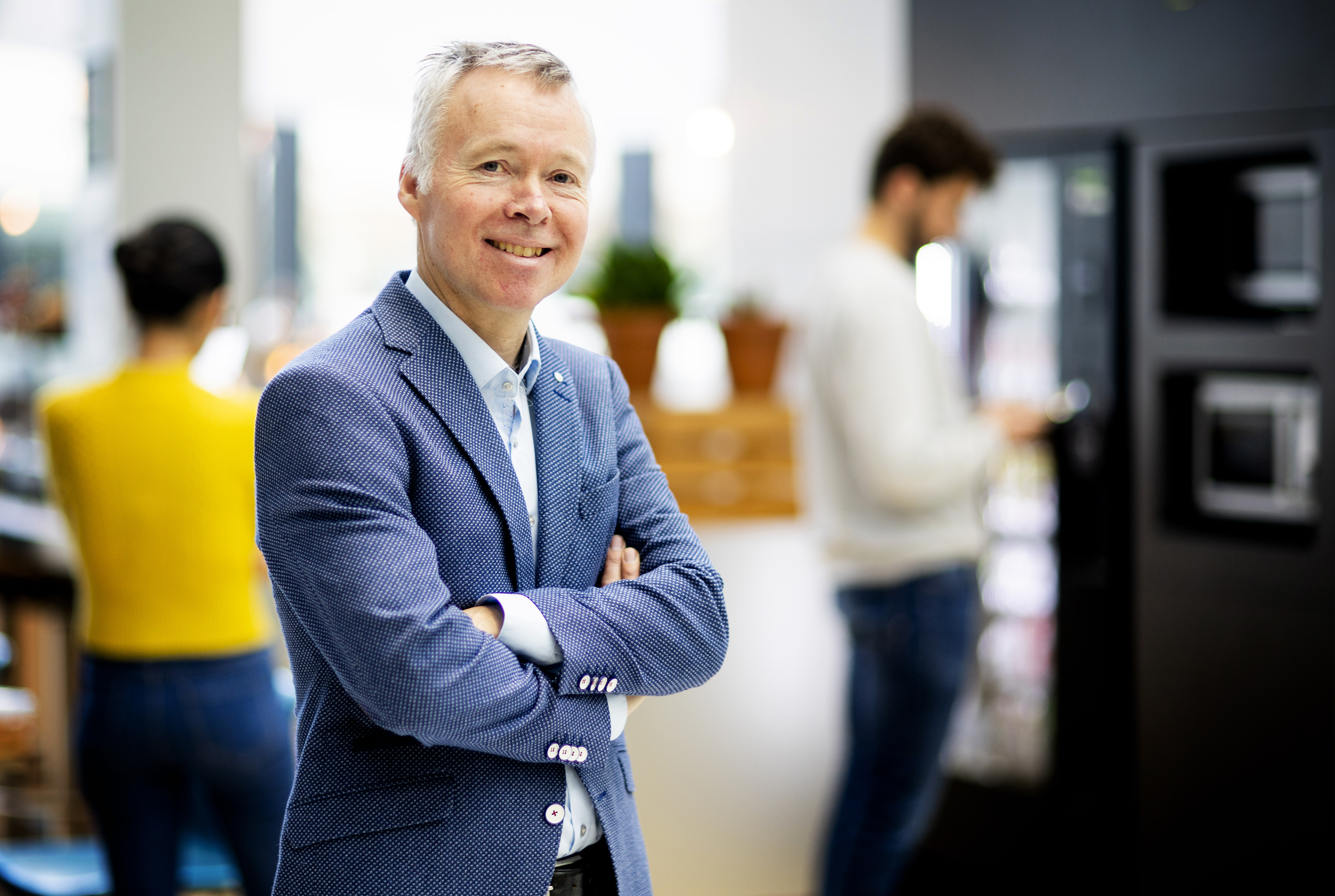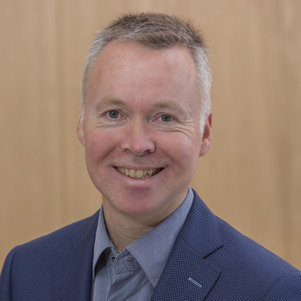Major grant boost for new field of cellular agriculture
On 21 October 2022, a government grant worth €60 million was awarded for an ambitious proposal in the field of cellular agriculture, a young discipline that aims to produce animal products such as meat and proteins directly from animal cells and microorganisms. The financial support – the largest grant ever provided for cellular agriculture by a national government – is from the National Growth Fund. The plan was submitted by the Cellular Agriculture Netherlands Foundation (CANS) in collaboration with the Ministry of Agriculture, Nature and Food Quality (LNV). Prof. Marcel Ottens, CANS board member and group leader in the TU Delft BioProcess Engineering research section, was among the founding fathers of the proposal.

Did you uncork the champagne when you heard of the decision?
“There was a press conference announcing the provisional grant awards in April 2022. At the time, we had a board meeting and didn’t yet know if we were among the lucky ones. When that turned out to be the case, we did open a bottle of champagne, yes. It’s incredibly gratifying that our proposal has been successful, because it involved a huge amount of work. I think it’s wonderful news for the sector as a whole.”
Most people are familiar with cellular agriculture from cultured meat: very expensive meat grown from animal stem cells that does not require animal slaughter.
“Cultured meat, also known as clean meat, probably appeals to the imagination the most. But it’s only half the story. We will also be working on precision fermentation, which involves microorganisms producing proteins as food for people or animals. This is part of what’s referred to as the protein transition, which will be essential for the sustainable food chain of the future.”
What challenges will you be taking on?
“The state of the art for meat and the one for microbial protein are very different. Microorganisms are highly suited to large-scale production – you only need to look at the scale at which beer is produced using yeast. The situation with cultured meat is different. We’re already capable of making a single burger, but how can we scale-up the production at an affordable price? The meat is made using animal stem cells, which are much more sensitive than microorganisms. That calls for a very sophisticated process design. We plan to explore the technical and biological aspects, but also the social aspects. That’s a very important theme for our consortium: ensuring that society is on board as we develop this technology.”
At what scale will we be able to produce meat and proteins using this technology?
“The biopharmaceutical industry is already using cell culture to produce medicines. The food industry represents a much bigger scale altogether. We may end up somewhere in between the two. The main challenge is being able to produce the protein-rich foods in a cost-effective way. That involves the equipment and process design, but also nutrients, supply lines and cells. That’s what’s so great about this consortium: we’ve brought together different players who represent the whole value chain. By working together, we can approach these challenges from an integrated perspective.”
Will an eight-year programme be enough to achieve that?
“This programme is about taking the first steps. At CANS, we’ve now spent almost two years working with the Ministry of LNV developing this plan. During this period, we’ve increasingly been focusing on what will be needed first: research, education and open access facilities for scaling up. We intend to start with three tenure-track Assistant Professors and doctoral candidates in Wageningen, Maastricht and Delft. After that, in 2025 and 2027, in partnership with NWO, we’ll organise ‘open calls’ for new research projects, to incorporate the latest developments and give research groups across the country an opportunity to participate.”
What will be your role in the new programme?
“First of all, I’ll be responsible for the research programme. My own research group in Delft is also participating. We specialise in bioprocesses, for example for the food industry. One of the three tenure-trackers to be appointed within the programme will therefore be working in Delft on cell culture. We’ll also be deploying our scale-up facility, the Bioprocess Pilot Facility (BPF), for the research. It’s an important part of the programme: often when you develop a nice process on a small scale, you then lack the funds to build process facilities where you can try out the new ideas on a larger scale. We intend to use our BPF and Brightlands in Limburg to help the field of cellular agriculture in scale-up. Finally, as well as being a researcher, I am also programme director of the post-Master’s programme in Bioprocess Engineering. In their second year, students on this programme will soon be able to carry out a design project as part of the Growth Fund programme.”
The consortium also includes institutions in higher professional and secondary vocational education.
“Yes, indeed. Companies in the sector demand well-trained personnel. We’re joining forces in order to train good people and resolve urgent issues. The teaching won’t be limited to the university: there’ll also be teaching at higher professional (HBO) and secondary vocational education (MBO) institutions and some of the applied research will be done at universities of applied science (HBO institutions).”
Cellular agriculture is a relatively new specialisation. How prepared is the Netherlands for this?
“The basic conditions within the Netherlands are good. We have a good reputation and have pioneering companies in this field. But if we are to grow and attract more activity, we need to remove some bottlenecks and train the right people. We need an ecosystem that makes it attractive for market players to set up business here. Of course, one thing prevails over market forces and that’s legislation. You may be able to produce things, but what if people aren’t permitted to consume them? Of course, food safety always comes first. That is also an area we try to contribute to, and not only in the Netherlands but across Europe.”
How important is this grant?
“There are plenty of companies already working on cellular agriculture. Without this grant, they would likely continue and research would also still be done, but not in a focused way. The impact will be much bigger if you adopt an integrated approach. That’s the advantage of the grant. It’s also a way to prevent companies from leaving the Netherlands and move to Singapore, for example, which is also seeing progress in cellular agriculture. With this programme, we’re trying to make the Netherlands the best place to set up business in this field, which will hugely benefit the country's earning potential.”

Prof. Marcel Ottens
Full professor
- +31 15 2782151
- +31 15 2782363 (secr)
- m.ottens@tudelft.nl
-
Room: B58-C0.550